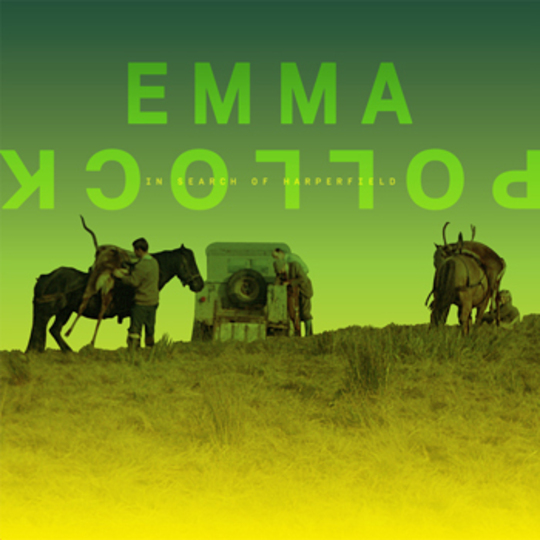On Emma Pollock’s confident third solo album she delves deep into her past, considering and expressing a multitude of emotions over 11 songs. That striking cover art is, in fact, a photo of Pollock’s father Guy Pollock, working the land near Blair Atholl, while ‘Harperfield’ is the name of the first house that he and her late mother Kathleen bought as a young married couple. Although In Search of Harperfield may not engage itself quite as directly with Pollock’s heritage as its title and cover art suggest - the lyrics here tend to be impressionistic rather than of a narrative bent - there’s a real sense of weight and history to these songs, directly stemming from Pollock’s contemplation of such themes. (That title’s no accident.)
This shouldn’t come as any surprise: as one quarter of The Delgados, Scotland’s most perennially underrated band, Pollock has pedigree in emotionally stirring, widescreen indie-rock, and her last (2010) album The Law of Large Numbers is an enduring, ceaselessly enjoyable work. …Harperfield is, happily, a worthy follow-up, something that becomes quickly apparent: ‘Cannot Keep a Secret’ is a rousing opener that keels from spectral and vaguely unnerving to spiralling and muscular, its threat of violence never entirely fading as Pollock details a roiling, merciless Atlantic Ocean and a bygone age. “Cross the water with me” she urges as the song begins. It sounds more like a command than an invitation.
Violence and anger stalk these songs. “I came down for a game of basketball / But you threw me a punch instead,” she sings in the series of scattered adolescent memories that make up ‘Parks and Recreation’; “Pushed down / Fell down / No matter how you swing it, you’ve hit the ground,” she notes, wryly, at the outset of ‘Clemency’. (Later: “I will clip your wings whilst sleeping / If you venture home again / And I will cut your legs from under you / If you so much as say her name.”) “Can you smell the storm coming?” she asks in ‘Monster in the Pack’. The arrangements, courtesy of Pollock’s husband (and fellow former Delgado) Paul Savage and Malcolm Lindsay, are vast, expansive, and often playful things; ‘In the Company of the Damned’ buzzes along on a percussive, skipping beat, ‘Vacant Stare’ boasts a punky, staccato snarl, while the austere chamber-pop of ‘Alabaster’ lurches in and out of jagged, static-riddled sections that prop up Pollock’s highly effective delivery.
These arrangements go some way towards ensuring that …Harperfield isn’t a heavy or oppressive listen, for all the exasperation (and sadness - see ‘Intermission’) that informs it. Then there’s Pollock herself, a constantly engaging presence, whose soft burr has never sounded quite so assured or on top of its material as it does here. The album’s closing trio finds her relatively at peace: ‘Dark Skies’ is sweet and lovely, finding solace in the fact that we “are the products of a million chances.” This signals the kind of wider acceptance of one’s place in the universe that begins with understanding one’s own heritage - a theme that haunts the record and snaps back into focus by way of its reflective last song.
‘Old Ghosts’ finds Pollock addressing… I’m not sure, exactly. Herself, as a child, perhaps? Her parents? A friend? Or someone - something - more elemental? Maybe all of them at various points over its five and a half minutes; maybe just an earlier her; maybe I’m way off the mark. Nevertheless, it’s a moving finale, one that takes off in a gentle, understated manner and finds Pollock at her most achingly vulnerable: “How am I supposed to speak to / Those I ridiculed, but still looked up to?” she wonders. Answers aren’t easy to come by on the affecting, powerful In Search of Harperfield, and it’s all the more enthralling for it.
-
8James Skinner's Score






















